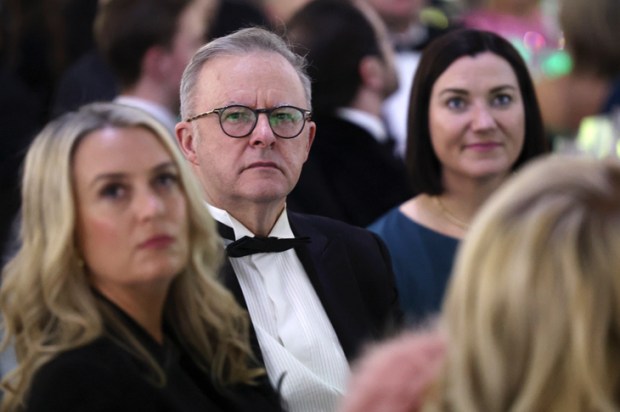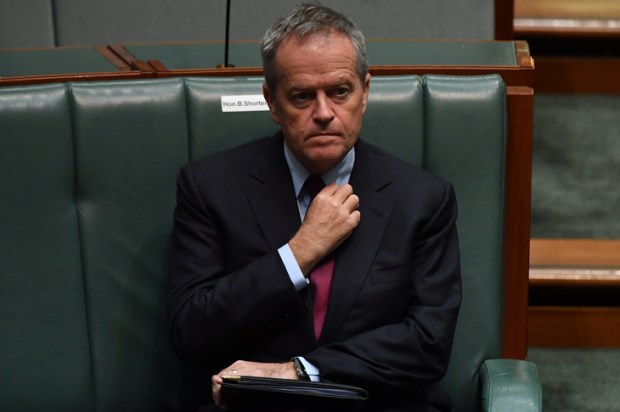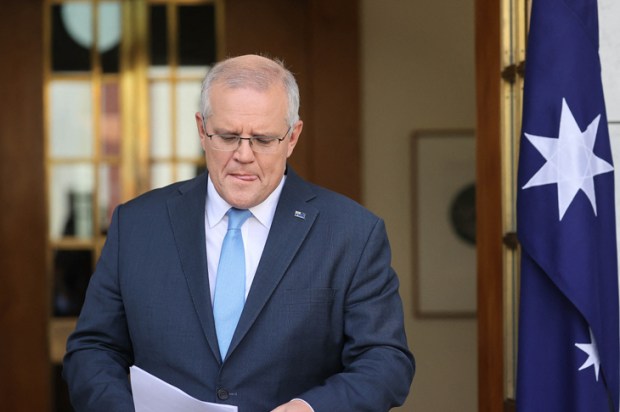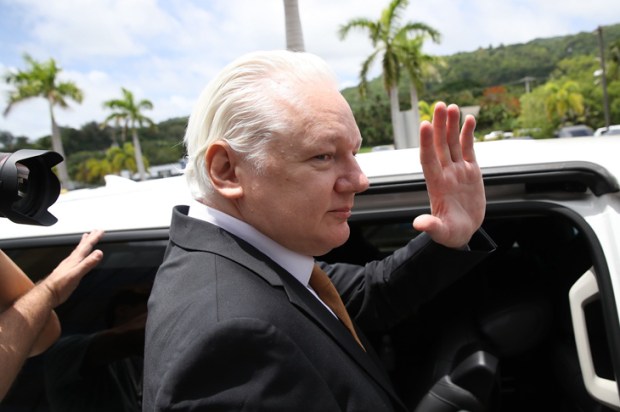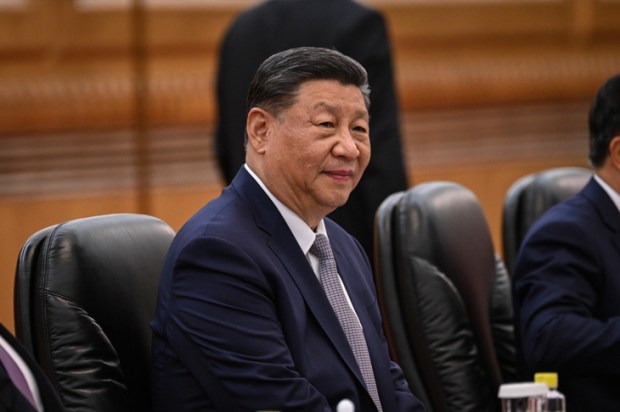As an economist, I naturally keep an eye on the performance of the federal Treasurer. (The state treasurers are almost universally appalling, so I don’t waste my time there.) It would seem that Jimbo’s best laid plans are now turning pear-shaped.
To be sure, he continues to earnestly promote his ever-changing arguments. The budget is contractionary one week and a few weeks later it is stimulatory. Inflation is coming down according to Jim on a good day; it’s too high on another. As Simon Benson of the Australian wittily put it: Jimbo is rapidly running out of sandpaper to spin his economic stories.
The frustrating thing for Jimbo is that he thought he had it all worked out. He would spend taxpayer money to provide cost-of-living relief and thereby affect the observed rate of inflation via the measured CPI. The Reserve Bank would be so impressed that it would start cutting the cash rate in the second half of this year, which would then flow into lower mortgage payments. The scene would be set for a decisive victory at the next election, to be called at the end of this year or early next year.
Unfortunately for Jim, the plan was always wrong-headed; by rights, high-quality advice from Treasury should have told him so. But these days, it’s almost impossible to put ‘high-quality’ and ‘Treasury’ in the one sentence. The burgeoning agency is stuffed full of green-obsessed Keynesians who don’t seem to realise that the world has changed.
The staff feel comfortable with having a Labor government because their inclination is also for the government to spend up big. There is just so much need in the community and unemployment must be kept low, according to the well-paid Treasury boffins.
The fact that the inflation genie is out of the bottle, potentially cementing in expectations of high inflation, doesn’t seem to worry them too much. Clearly, they learnt nothing at university or they undertook some mushy political economy degree at Sydney University, like our own ‘handsome boy’.
The last reading on the CPI was nothing short of a disaster for Jimbo. By cherry picking the data, he has attempted to make the point that inflation was much higher under the Coalition government and Labor has been able to bring it down. Mind you, the higher inflation was a result, at least in part, of the excessive spending undertaken during Covid, spending that Labor fully supported. Indeed, that goose, Labor’s Andrew Leigh, was very disappointed when the defective but expensive JobKeeper intervention was terminated. He thought that it should be extended!
But let’s take a look at the figures. The Reserve Bank focuses on the annual trimmed mean of the CPI. (Don’t you just love this arcane term: the ‘annual trimmed mean’? It sounds positively religious.) When Labor first came to office, the annual trimmed mean was growing at 4.3 per cent per annum. The latest figure for May of this year shows that this measure grew at 4.4 per cent. Not good, Jimbo. It’s been a dismal year, with clear signs that the rate of inflation is ticking up rather than declining.
I’m not quite sure how he thought it would be otherwise. By promoting wage rises without any productivity gains, the road was built for higher inflation. Spending lavishly on the full range of Labor’s pet projects would inevitably lead to higher prices.
You just have to take a look at the budget spending figures to see what is going on. In the financial year that has just finished, federal government spending was around $683 billion, an increase of $56 billion from the previous year. But here’s the rub: spending will rise to $727 billion this financial year and to $762 billion in 2025-26, with substantial deficits in the two years.
Under Jimbo’s watch, government payments go from 24.5 per cent of GDP to 26.6 per cent in 2025-26. It might not be quite Whitlamesque, but it’s up there. And let’s not forget, overall spending as a proportion of GDP was actually relatively low under Gough the Great – it was the rate of increase that was the problem.
Now Jimbo and Albo place great store by the fact that two budget surpluses have been delivered under their watch. But let’s be clear, these results are not because of anything the Labor government has done, certainly on the spending side. This is due to the continued good luck of high commodity prices – of commodities that Labor basically wants to destroy; coal and LNG, in particular – as well as the crippling effect of bracket creep Hoovering up income tax dollars from ordinary taxpayers.
It is simply economically naive to think that the budget cash balance indicates the nature of the budget setting – contractionary or stimulatory. The rapid growth in government spending is the key as it puts pressure on resources in the economy. Resources are dragged away from private sector activities to meet the demands of government-funded services, particularly the NDIS but also aged care and child care.
There is in fact a very unseemly shadow dispute going on between Jimbo and the supposedly independent Reserve Bank. After the usual qualification that the bank makes up its own mind, Jimbo is very wont to tell us all that there is no case for an increase in the cash rate and that he really does have inflation under control. It’s just that the downward trajectory is not linear – or should that be, not downward?
The independence of the bank is being challenged and it’s not entirely clear that the governor, Michele Bullock, and the mixed-calibre board are really up to it. Arguably, a big mistake was made by leaving the cash rate too low, particularly compared with other advanced economies. There should have been at least one more 25 basis point increase last year.
The really big question is whether Bullock will buckle under this pressure and refuse to put the cash rate up when virtually all the indicators point in that direction. Jimbo is praying for this outcome, but bear in mind his personally redesigned Stage 3 tax cuts are kicking in at the precisely the wrong time, economically speaking. (Had he left the design as it was, the economic impact would have been far more muted.)
There is a great deal hanging on the next few months for Jimbo. For caucus members who may have regarded Jimbo as the obvious person to replace Albo, what happens to inflation, interest rates and the economy in general will have a huge impact on their opinion of his leadership skills. It may well be all over for Jimbo before he even gets to the top of the mountain.
Got something to add? Join the discussion and comment below.
You might disagree with half of it, but you’ll enjoy reading all of it. Try your first month for free, then just $2 a week for the remainder of your first year.


